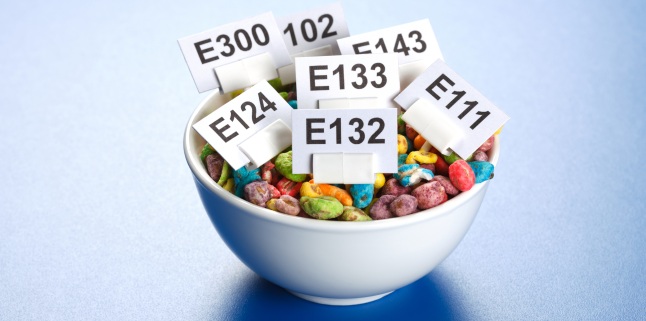The most dangerous food additives

Monosodium glutamate (E621). It is a sodium salt of glutamic acid, a non-essential amino acid naturally occurring. It is a classic food additive, used to enhance the flavor of the dishes. Monosodium glutamate was highly controversial, especially after a 1969 study of laboratory mice, which was found to cause adverse neurological effects, affecting their growth and development. However, the additive is unlikely to have any effect on the health of the human brain because it fails to cross the blood-brain barrier. Consumption of monosodium glutamate has also been associated with weight gain and some observational studies, although other research has found no connection.
Some people have increased sensitivity to monosodium glutamate and may experience symptoms such as headaches, numbness. Sodium nitrite (E250). Commonly used in processed meat, sodium nitrite acts as a preservative to prevent the growth of bacteria, adding salty flavor and red-pink color. When exposed to high temperatures and in the presence of amino acids, nitrites can be converted to nitrosamine, a compound that may have harmful effects on health. A high intake of nitrites and nitrosamines has been associated with an increased risk of stomach cancer, breast cancer and bladder cancer.
Also, exposure to nitrosamine was correlated with a higher incidence of a. Caragenan (E407). It acts as a thickening agent, emulsifier and preservative in many food products. It is a natural product, obtained from certain species of. It is used in sweets, creams, sauces, toppings, dressings, frozen, in preserved fruits and vegetables, in meat products, fish, eggs.
Although its use as an additive is regulated in some recommended amounts, there are studies that show that it favors digestive tract inflammation. Carrageenan may also increase blood sugar levels and may promote insulin tolerance and. It is considered to have a negative impact on digestive health and can be associated with training. Sodium benzoate (E211). It is a preservative often added in carbonated beverages and used in the preservation of vegetables, fruits.
Several studies have found potential side effects that should be considered. For example, combining sodium benzoate with artificial ones has increased hyperactivity in children. Also, a high consumption of beverages containing sodium benzoate has been associated with symptoms from adolescents and young people. In combination with, sodium benzoate turns into benzene, a toxic compound associated with the development of cancer. .
Source : sfatulmedicului.ro
Views : 3084
Popular Article
- (photo) Nude becomes art.
Posted: 2018-03-17, 9761 views.
- The harmful effects of air conditioning on the skin
Posted: 2017-06-08, 8471 views.
- 3 causes of dyed hair discoloration
Posted: 2017-06-15, 8352 views.
- Why early puberty occurs in girls: symptoms, favors, diagnosis and treatment
Posted: 2017-10-24, 8193 views.
- Good or bad skin treatments in the hot season
Posted: 2017-06-07, 7923 views.
Recommendations
- (photo) Nude becomes art.
Posted: 2018-03-17, 9761 views.
- The harmful effects of air conditioning on the skin
Posted: 2017-06-08, 8471 views.
- 3 causes of dyed hair discoloration
Posted: 2017-06-15, 8352 views.
- Good or bad skin treatments in the hot season
Posted: 2017-06-07, 7923 views.
- Risks of practicing sports on hot days
Posted: 2017-06-12, 7504 views.
 4 effective ingredients in the fight against acne.
4 effective ingredients in the fight against acne. How to get rid of hiccups fast
How to get rid of hiccups fast The wheat bran diet: the secret of lost pounds as if by magic
The wheat bran diet: the secret of lost pounds as if by magic The recipe that will sweeten your soul this weekend!
The recipe that will sweeten your soul this weekend!  Is it dangerous or not to refreeze meat after thawing it?
Is it dangerous or not to refreeze meat after thawing it?  The unusual sign of diabetes indicated by saliva.
The unusual sign of diabetes indicated by saliva. What to drink to boost your immune system.
What to drink to boost your immune system. 10 foods that help you never age.
10 foods that help you never age. What actually happens in your body if you drink a cup of coffee for breakfast
What actually happens in your body if you drink a cup of coffee for breakfast 5 surprising benefits of chia seeds
5 surprising benefits of chia seeds